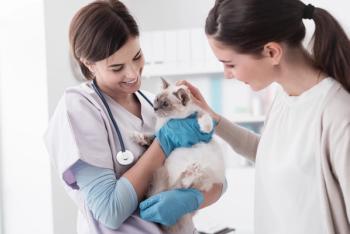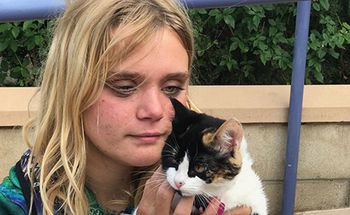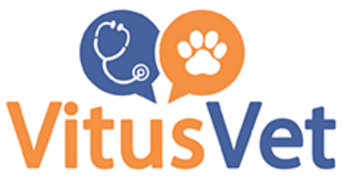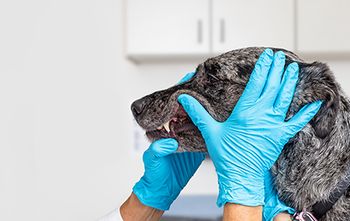
Don't miss your chance to participate in an immersive online marketing and strategy workshop event designed to help you and your practice thrive during these unprecedented times in veterinary medicine.

Don't miss your chance to participate in an immersive online marketing and strategy workshop event designed to help you and your practice thrive during these unprecedented times in veterinary medicine.

If you’re considering adding boarding facilities in your veterinary practice, here are some tips for improving accommodations while also marketing your services.

Matters of the heart can get tricky. That’s why we’ve developed a host of tools to help you get a handle on heartworm disease in dogs and cats. (With an educational grant provided by Bayer)

Your clients might question the need for annual heartworm testing if their dog has been on a preventive throughout the year. Now you can give them the answers easily.

Give your clients the facts about the damage heartworm disease can do not only to their pet’s health but also to their pocketbook.

Nutritional information is a key part of a veterinary patient’s history and crucial to good medical case management, yet this information can be elusive. According to the results of a new study, how you phrase your question can make all the difference between an ample answer and a lean response.

With so many practices turning to telemedicine during the COVID-19 pandemic, experts share what it really means—and some key benefits of incorporating telehealth into veterinary practice.

To reel in new veterinary clients—and turn them into loyal customers—you must appeal to their hidden “hero.”

A dive into the mindset of your millennial clients reveals their philosophies about pet ownership, their interest in pet health insurance, and how to communicate with this group in ways that are meaningful to them.

How are your veterinary clients coping with all the major changes your practice has implemented in the face of COVID-19? One practice team shares their experience.

Addressing this question with your elderly clients can be challenging and uncomfortable, but it’s important and requires careful attention.

New research reinforces the power of word-of-mouth referrals in growing your veterinary practice.

A free CE webinar presented by Vetsymposium and sponsored by VitusVet.

Several readers wrote to share their opinions about recent articles in dvm360. Here are three of them.

New data highlight another way your veterinary practice may be able to increase revenue: Offer additional payment options.

Use these expert tips and tools to hone your otitis diagnosis and treatment skills, and make it as easy as possible to educate pet owners about this painful and annoying condition. (With an educational grant provided by Bayer)

Lap of Love Veterinary Hospice cofounder Dr. Mary Gardner breaks the daunting discussion into thoughtful categories that ideally result in a more informed, less burdensome decision.

Talking about fleas and other parasites with your veterinary clients can be exasperating when your advice goes unheeded, but veterinarian Jessica Stroupe finds humor in her frustration about what she calls "flea denial."

Veterinary practice manager Bash Halow offers strategies on how to use telemedicine as a way to fortify the veterinarian-client-patient relationship.

You may have missed VMX this year, but don't worry, we've got you covered. Here are some of the hot topics from this year’s conference.

We veterinarians like to say, “Cats are not small dogs.” A similar credo differentiates the cat owner from the dog owner.

When you suspect food allergy in a patient, performing an elimination diet trial is easier said than done. A veterinary dermatologist offers insight into how she selects a diet for her patients.

There are no doubt lots of things your practice could add, but there are likely just as many that you could remove—much to the betterment of your veterinary hospital.

Making assumptions about what our clients do and don’t understand can cost much more than lost revenue.

Price breaks for staff family members, hardship clients and rescue organizations are costing Dr. Reed's veterinary practice. His brilliant idea? Staff members should pay a percentage of the discount. Hold on, says his hospital administrator.

If clients are showing some resistance to scheduling with your hospital's new veterinarian, try these best practices to get them from "I'd rather not" to "Let's do this!"

As more domestic violence shelters add pet accommodations, victims who might have remained in an abusive situation are seeking help. But there is more work to be done.

My experience with the Street Dog Coalition during the Fetch dvm360 conference provided insight, experience and ideas for my own community when it comes to caring for pets with no roof over their head.

A CE webinar presented by Vetsymposium and sponsored by VitusVet.

Keep pet owners informed through the entire dental examination and extraction process, soothe fears about anesthesia, make jargon-free correlations and address cost concerns with advice from Kendall Taney, DVM, DAVDC, FAVD.